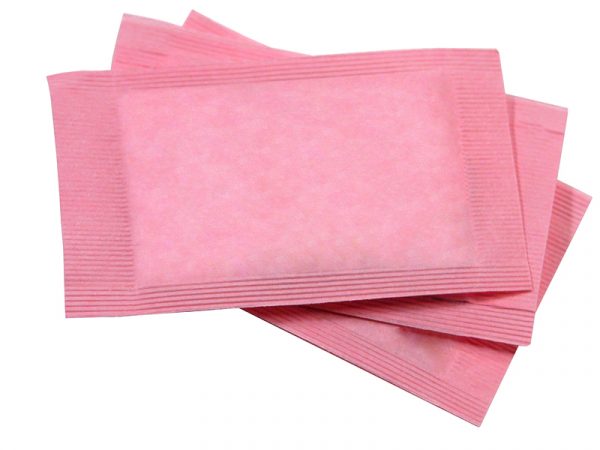By David Blyweiss, M.D., Advanced Natural Wellness
Maybe you’re trying to lose weight or need to take better control of your blood sugar. So you’ve decided to do yourself a favor and substitute sugar with artificial sweeteners.
I understand the appeal. The marketers for these fake sugars make it sound like they are the cure-all for obesity and metabolic issues. They aren’t.
It’s just not good for you.
Not only do sugar-free sweeteners contribute to a larger waistline and the development of metabolic disorders like diabetes, they also greatly add to your chances of developing some extremely dangerous health issues.
First of all, they trick your body into thinking it’s going to get a big dose of calorie-rich sugar. So your body releases insulin in expectation of a sugar rush.
But soon after consuming an artificial sweetener your brain says “Hey, wait a minute. You can’t fool me. This isn’t right. It’s fake. I want a REAL SWEETENER!”
Now your body is craving sweets and your appetite is revved up even more than it was before. And you’ve got all of that unnecessary insulin rushing through your body that causes you to store more fat.
Secondly, fake sweeteners increase the proportion of gut microbes that disrupt metabolism and energy stores. They promote gut bacteria that are pre-programmed to turn energy into fat and cause metabolic alterations that can can lead to abnormally high blood sugar levels.
Even worse, the bacterial alterations caused by artificial sweeteners can permeate your intestinal barrier, allowing gut bacteria to enter the bloodstream and infect other organs in your body.
Heart-Stopping Sweetness
In September, 2022, the British Medical Journal released a massive study. It spanned more than a decade and evaluated artificial sweetener intake among over 100,000 people.
What they discovered is that people who had the greatest intake of fake sweeteners were at a much higher risk of cardiovascular disease.
In particular, acesulfame potassium (Ace-K, Sweet One®) and sucralose (Splenda®) were associated with an increased chance coronary heart disease, which is defined by plaque build-up in the arteries that supply blood to the heart… and can lead to a heart attack.
Aspartame (Nutrasweet®, Equal®) was associated with a higher risk of stroke.
All of this is on top of the fact that many artificial sweeteners are neurotoxins. They over stimulate neuron receptors which, over time, destroys brain cells.
This can cause headaches, insomnia, seizures and other neurological side effects. It can also lead to serious health problems such as multiple sclerosis, Alzheimer’s disease and Parkinson’s disease.
Plus, these sweeteners are associated with a decline in kidney function. And sucralose, which is chlorinated sucrose, is linked to low thyroid function and reduced production of thyroid hormones – both of which can lead to slower metabolism and weight gain.
So misleading marketing efforts have convinced you that using these dangerous sweeteners is good for you. But in reality, they are absolutely terrible for your health.
A Clouded History of Bans, Shenanigans and Controversy
Artificial sweeteners have a clouded history to start with. At various points in time, both saccharin and aspartame have been banned from use in the U.S. But shenanigans between the food industry and the FDA managed to bring them back onto the market. (Here’s a great story from the Huffington Post on how Donald Rumsfeld used shady tactics to lift the ban on aspartame back in the 80’s.)
Decades of science point to the serious health risks of these faux sweeteners. And the more research that comes out, the greater our understanding of their devastating health effects.
In an ideal world, we wouldn’t need them. We would be eating more wholesome, natural foods that aren’t loaded down with added sugars. And we would add less sugar to the foods we make at home – no more than nine teaspoons of raw cane sugar daily.
But if you feel you really need a no-calorie sweetener, I recommend stevia. It’s a safe, calorie-free sweetener that doesn’t carry any of the risks you find with artificial sweeteners.
And by the way, Truvia® isn’t even close to being the same thing as natural stevia. Look for a pure stevia leaf extract without any added ingredients.
SOURCES:
Fagherazzi G, Gusto G, Affret A, Mancini FR, Dow C, Balkau B, Clavel-Chapelon F, Bonnet F, Boutron-Ruault MC. Chronic Consumption of Artificial Sweetener in Packets or Tablets and Type 2 Diabetes Risk: Evidence from the E3N-European Prospective Investigation into Cancer and Nutrition Study. Ann Nutr Metab. 2017;70(1):51-58.
Suez J, Korem T, Zeevi D, Zilberman-Schapira G, Thaiss CA, Maza O, Israeli D, Zmora N, Gilad S, Weinberger A, Kuperman Y, Harmelin A, Kolodkin-Gal I, Shapiro H, Halpern Z, Segal E, Elinav E. Artificial sweeteners induce glucose intolerance by altering the gut microbiota. Nature. 2014 Oct 9;514(7521):181-6.
Hoffman BR, Ronan G, Haspula D. The Influence of Sugar and Artificial Sweeteners on Vascular Health during the Onset and Progression of Diabetes. The FASEB Journal. 2018 32:1 supplement, 603.20.
Shil A, Chichger H. Artificial Sweeteners Negatively Regulate Pathogenic Characteristics of Two Model Gut Bacteria, E. coli and E. faecalis. Int J Mol Sci. 2021 May 15;22(10):5228.
Debras C, Chazelas E, Sellem L, Porcher R, Druesne-Pecollo N, Esseddik Y, de Edelenyi FS, Agaësse C, De Sa A, Lutchia R, Fezeu LK, Julia C, Kesse-Guyot E, Allès B, Galan P, Hercberg S, Deschasaux-Tanguy M, Huybrechts I, Srour B, Touvier M. Artificial sweeteners and risk of cardiovascular diseases: results from the prospective NutriNet-Santé cohort. BMJ. 2022 Sep 7;378:e071204.
Humphries P, Pretorius E, Naudé H. Direct and indirect cellular effects of aspartame on the brain. Eur J Clin Nutr. 2008 Apr;62(4):451-62.
Pase MP, Himali JJ, Beiser AS, Aparicio HJ, Satizabal CL, Vasan RS, Seshadri S, Jacques PF. Sugar- and Artificially Sweetened Beverages and the Risks of Incident Stroke and Dementia: A Prospective Cohort Study. Stroke. 2017 May;48(5):1139-1146.
Ardalan MR, Tabibi H, Ebrahimzadeh Attari V, Malek Mahdavi A. Nephrotoxic Effect of Aspartame as an Artificial Sweetener: A Brief Review. Iran J Kidney Dis. 2017 Oct;11(5):339-343. Oliynyk O. The influence of sucralose on thyroid gland function. Health Problems of Civilization. 2021;15(1):12-16.




